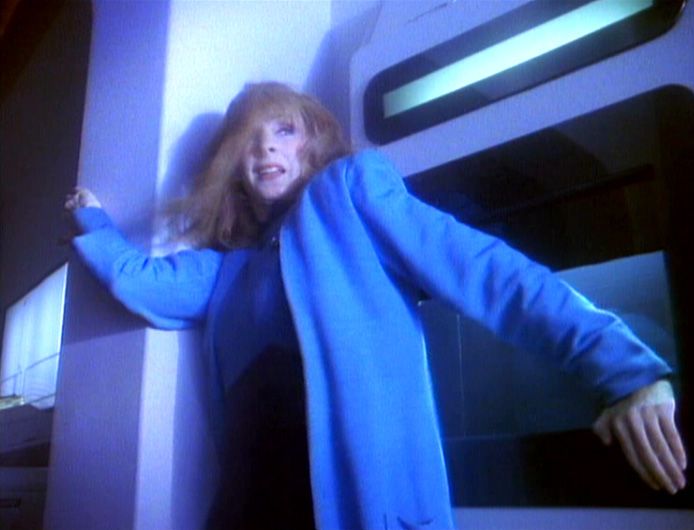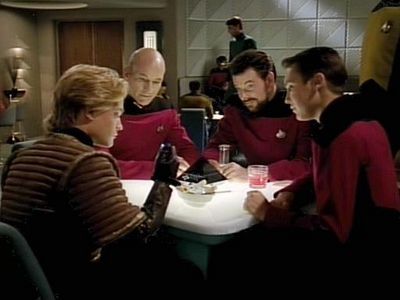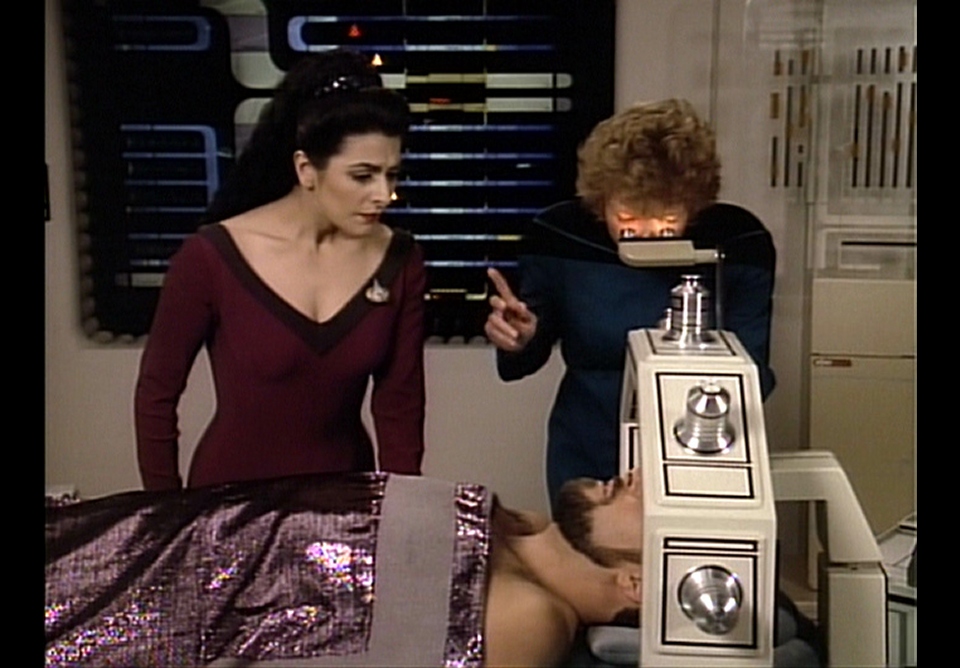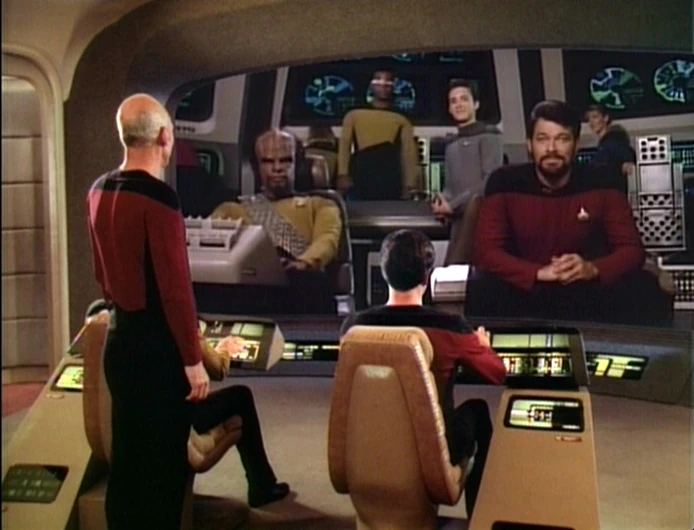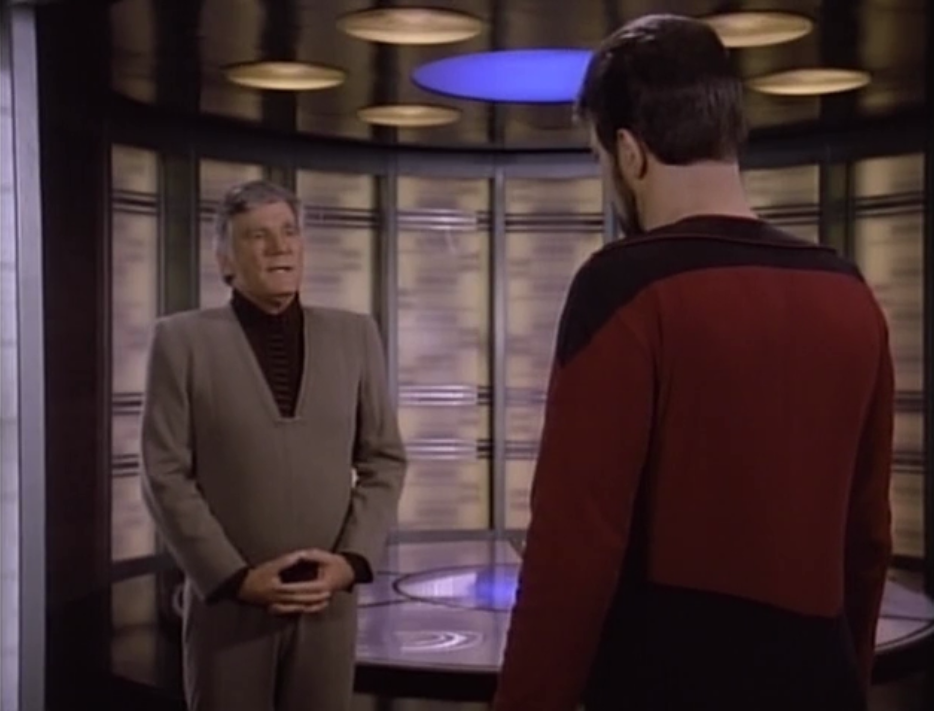the story: Picard accompanies Wesley Crusher on his way to Starfleet Academy but they end up marooned on a desert planet after a crash-landing.
similar to: "Skin of Evil" (Next Generation), "The Gift" (Voyager)
my thoughts: So few main characters leave any of the series in franchise history with any kind of send-off, it's hard not to think of "Final Mission" as Wesley's farewell as a regular. The problem is that after his subsequent visits in later episodes, "Mission" loses whatever luster it might have had in that regard, and must rely on its own meager merits.
Unlike "Skin of Evil" (the sudden death of Tasha Yar) or "The Gift" (where Kes departs), the event of Wesley's departure is at once so formal and ultimately anticlimactic it's irrelevant to the episode, meaning the rest of the story has to stand on its own, which means whether or not Wesley himself has grown, or is presented well here, is what counts. And while Wesley has grown since the beginning of the series, he's actually lost what made him special. By this point he's become just another presence in the series, about as significant as anyone else who exists in the background, really. His interactions with Picard are minimal (Picard becomes incapacitated for much of the episode), and so even that is robbed of him for this occasion.
Later Wesley appearances find him in a new dynamic, fending for himself, wrestling with new moral dilemmas and new modes of responsibility. This is an episode of mere survival, in which nothing is more important than the most basic heroism and generic antagonists (the selfish pilot who sucks most of the life out of the proceedings thanks to a bad casting job or perhaps uninspired directing; the actor portraying him finds a much better role in Deep Space Nine's "Honor Among Thieves").
The problem here is that the sentiment behind scenes is left almost entirely absent in the episode itself. It was a big deal. But the episode fails to convey that, unfortunately. Still, it remains unique in franchise history. Wesley remains the only series regular (except his mom Dr. Crusher, who left after the first season, and returned in the third, as a regular both times) to leave with the promise, and delivery, of future appearances.
You can enjoy it, to a limited extent, for what it is, but there was such potential to be something more.
criteria analysis:
notable guest-stars:
Nick Tate



